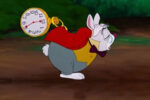Headaches: the subjonctif
We don’t really know the subjonctif (subjunctive) in Dutch. But you regularly come across it in French. That can sometimes cause headaches. Time to take a look!
You use the subjonctif when there is something subjective. The verb form occurs in a subordinate clause, after the word ‘que’. The main clause must contain a verb that expresses a will or wish, a feeling, necessity, (im) possibility or uncertainty.
So a sentence like “I’m not sure she knows him well” would call for the subjonctif in French. After all: ‘I’m not sure’ is the main clause containing an uncertainty, and ‘whether she knows him well’ is the subordinate clause.
You come across the subjonctif a lot when there is a need. Something has to be done and then you start the sentence with ‘Il faut que…’, after which the verb is in subjonctif.
How do you make it subjonctif?
Step 1 : you take the stem of the verb; for this you take the ils form of the verb and subtract the ending -ent.
Step 2 : behind the stem you paste -e, -es, -e, -ions, -iez, -ent.
So with the verb ‘réfléchir’ (to think) it goes like this.
Step 1 : take the stem (from ‘ils réfléchissent’) réfléchiss-.
Step 2 : que je réfléchisse, que tu réfléchisses, qu’il réfléchisse, que nous réfléchissions, que vous réfléchissiez, qu’ils réfléchissent.
So translate the earlier example ‘I’m not sure she knows him well’ as: ‘Je ne suis pas sûr qu’elle le connaisse bien.’
Some more examples:
- Marie wants Max to come.
> Marie souhaite que Max vienne. - I want you to come and help me
> Je veux que tu viennes m’aider. - We have to go now.
> Il faut que nous sortions maintenant. - It’s a shame you missed the performance.
> C’est dommage que tu ait raté le spectacle.
Exception: if the verb conjugation at ‘nous’ and ‘vous’ changes completely, then the stem of the verb in the subjonctif form changes along with ‘nous’ and ‘vous’.
See for example the verb ‘boire’. Step 1 (take the trunk): ils boivent and nous buvons. Step 2: que je boive, que tu boives, qu’il boive, que nous buvions, que vous buviez, qu’ils boivent.
The irregular verbs (être, avoir, faire, aller, pouvoir, vouloir, savoir, falloir, etc.) would not be irregular if they were not also given special conjugations in the subjonctif. That is – unfortunately – a matter of memorization.






